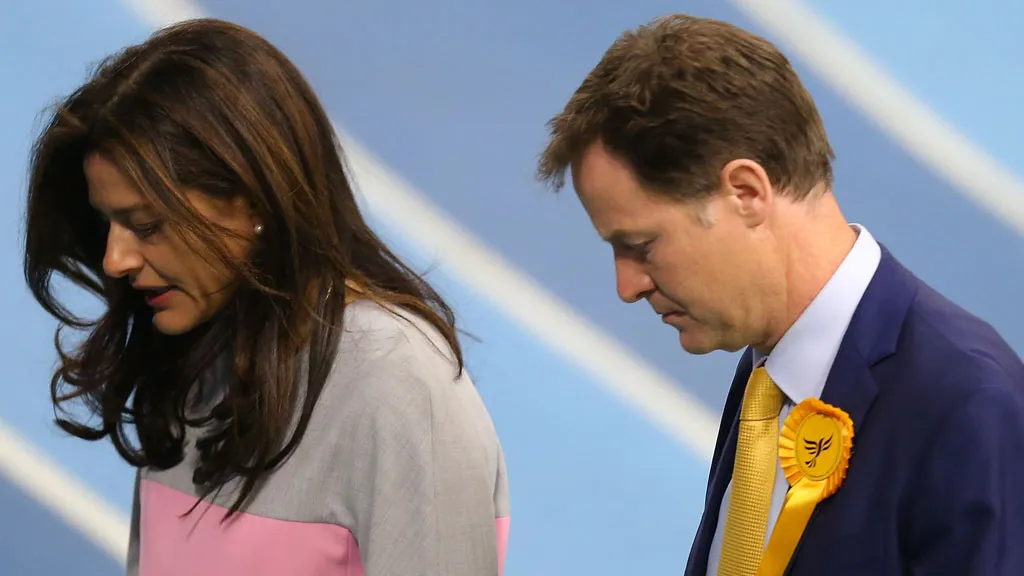Chris Luffingham – campaigns specialist
Luffingham was the national campaigns director for the Green Party for “its most successful ever general election in 2015”
A Mismanaged Campaign: The Green Party’s Missed Chance in 2015
The 2015 UK general election was supposed to be a turning point for the Green Party. With membership skyrocketing by 35% in just a year and polls suggesting a 7% vote share, the Greens were brimming with optimism. They had their eyes set on expanding their presence in Parliament, targeting eight key constituencies. But when the dust settled, the results were far from what they had hoped for.

At the heart of this disappointing outcome was Chris “Billy” Luffingham, the Green Party’s Campaigns Director for the election. His appointment raised concerns from the start, with many members questioning his salary1, which was kept secret from the wider party. The campaign he led was supposed to build on the party’s momentum, but instead, it floundered.
The Numbers Don’t Lie
Despite fielding a record 573 candidates, the Green Party only managed to retain one MP—Caroline Lucas in Brighton Pavilion. A staggering number of candidates failed to win even 5% of the vote, leading to lost deposits that drained £250,000 from the party’s coffers. The final national vote share? A disappointing 3.8%, well below expectations.

Luffingham’s Strategic Blunders
The blame for this failure falls squarely on Luffingham’s strategy—or lack thereof. Instead of concentrating resources on winnable seats, he spread them too thinly across the entire country, ensuring that no single constituency received the attention it needed. This shotgun approach was a costly mistake.
Worse still, Luffingham ignored the nuances of local politics, insisting that every constituency follow a rigid, one-size-fits-all strategy. His dismissive attitude towards local concerns alienated grassroots campaigners and undermined efforts where they mattered most.
Luffingham Banned from Bristol West
In one of the Green Party’s target seats, Bristol West, tensions ran so high that the local party banned Luffingham from entering the constituency and withheld their data from the central party—a move later endorsed by the Green Party Executive Committee2.
Debate Debacles and Old Boys’ Networks
Another glaring issue was the lack of preparation for the leadership debates. Natalie Bennett, the Green Party leader, stumbled through public appearances, culminating in a now-infamous “brain freeze” on live radio. This wasn’t just a slip-up; it was a failure of leadership. As Campaigns Director, Luffingham should have ensured Bennett was ready to face the media.
Following that incident, Luffingham sought outside assistance to prepare her for the second TV leaders’ debate. He brought in Stephen Pritchard, the director of drama at Colstons3, a private school in Bristol where tuition costs £13,000 per year and where Luffingham himself had once been a student. However, this effort proved to be too little, too late.
Spin Doctor Struck Off
The fallout from the 2015 election was swift. Luffingham quickly stepped down from his role, with little fanfare or support from within the party. His departure was met with silence4—a telling sign of how his leadership was received.
Looking back, it’s clear that the Green Party’s 2015 election campaign was a wasted opportunity. The contrast with their performance in the 2024 general election, where a more focused strategy led to significant gains, only highlights the missteps of 2015.
| Election Year | Number of Lost Deposits | Votes Nationally | Percentage of the Vote | Number of Seats Won |
|---|---|---|---|---|
| 2015 | 458 | 1,157,613 | 3.8% | 1 |
| 2024 | 385 | 1,931,880 | 6.8% | 4 |
The Green Party’s experience underscores a fundamental truth of electoral politics: winning seats is the ultimate barometer of success. What could have been a breakthrough moment for the Greens turned into a lesson in the dangers of poor planning and misplaced priorities.
Celebrating Mediocrity
After leaving the Green Party, Chris Luffingham has repeatedly claimed that he delivered the most successful election campaign in the party’s history. However, this claim is both deeply misguided and misleading. Anyone with even a basic understanding of general election campaigns knows that the ultimate measure of success is winning seats—nothing else truly matters.
Despite failing to secure a single additional MP, Luffingham continues to tout the 2015 campaign as a victory. This is a clear example of celebrating mediocrity, revealing a troubling willingness on Luffingham’s part to spin a lacklustre result into personal achievement rather than confronting the campaign’s failures.
- The Guardian, 3 September 2014 ↩︎
- DENNISON, James (2016), The Greens in British Politics, Palgrave Macmillan, p. 46 ↩︎
- The Independent, 24 July 2015 ↩︎
- The Independent, 24 July 2015 ↩︎
